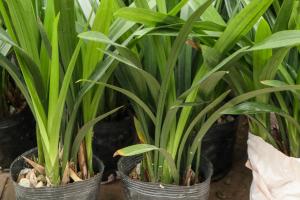What Kind of Insects Bore into Tomato Plant Stems?
Tomato plants are a favorite among gardeners because they are easy to grow and produce delicious fruits. However, tomato plants are also vulnerable to pests, particularly those that bore into the stems. In this article, we will explore the different types of insects that bore into tomato plant stems and how to prevent and control their infestations.
Tobacco Hornworms
Tobacco Hornworms are one of the most common insects that bore into tomato plant stems. They are the larval stage of the tobacco hawkmoth and can grow up to 4 inches long. Tobacco Hornworms bore into tomato stems to feed on the sap and can cause significant damage to the plant. They also feed on the leaves, fruits, and flowers of the tomato plant.
To prevent tobacco hornworm infestations, it's important to inspect tomato plants regularly for signs of damage. If you find any larvae or eggs, remove them by hand and dispose of them. You can also use insecticides specifically designed to control tobacco hornworms, but be sure to follow the instructions carefully.
Tomato Fruitworms
Tomato Fruitworms are another common pest of tomato plants. They are the larval stage of the Corn Earworm and Helicoverpa zea, and they bore into the stems and fruits of tomato plants to feed on the sap and pulp. Tomato Fruitworms can cause severe damage, causing the fruits to rot and drop prematurely.
To control tomato fruitworm infestations, it's essential to remove and destroy any infested fruits, flowers, or leaves promptly. You can also use insecticides specifically designed to control tomato fruitworms.
Stink Bugs
While stink bugs are not known to bore into tomato plant stems, they can still cause significant damage to tomato plants. These insects feed on the fruits of the plant by piercing the skin and sucking out the juices. This can result in deformed or misshapen fruits and can make them inedible.
To prevent stink bug infestations, it's important to remove any infested fruits promptly. You can also use insecticides or other natural repellents like neem oil or garlic spray to control stink bugs.
Preventing and Controlling Infestations
There are several steps you can take to prevent and control infestations of insects that bore into tomato plant stems. These include:
Inspecting tomato plants regularly for signs of damage or infestation.
Removing and destroying any infested fruits, leaves, or stems immediately.
Using insecticides or natural repellents like neem oil or garlic spray.
Encouraging natural predators like birds, ladybugs, and praying mantises to help control pest populations.
Covering tomato plants with row covers or netting to prevent egg-laying from moths and other insects.
Rotating crops to prevent insect infestations from building up in the soil.
By following these measures, you can ensure healthy tomato plants and a bountiful harvest free from pests that bore into the stems.

 how many times do yo...
how many times do yo... how many planted tre...
how many planted tre... how many pine trees ...
how many pine trees ... how many pecan trees...
how many pecan trees... how many plants comp...
how many plants comp... how many plants can ...
how many plants can ... how many plants and ...
how many plants and ... how many pepper plan...
how many pepper plan...
































